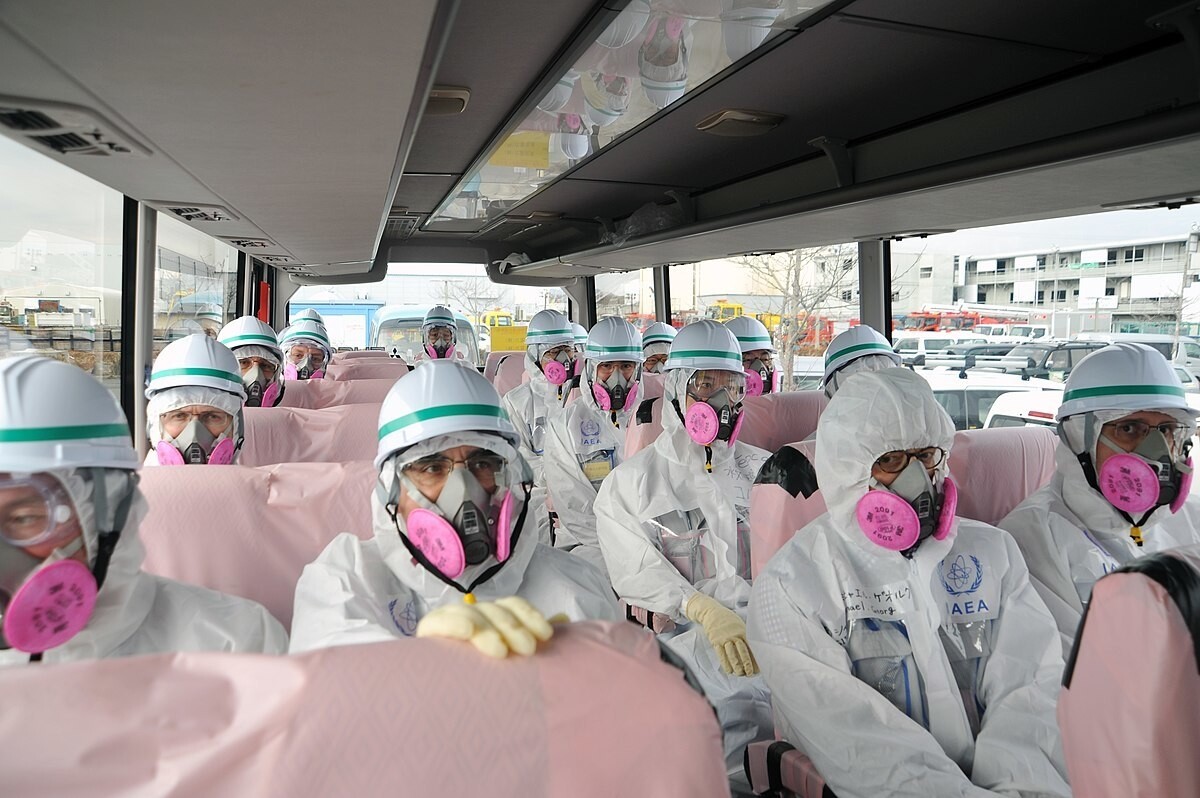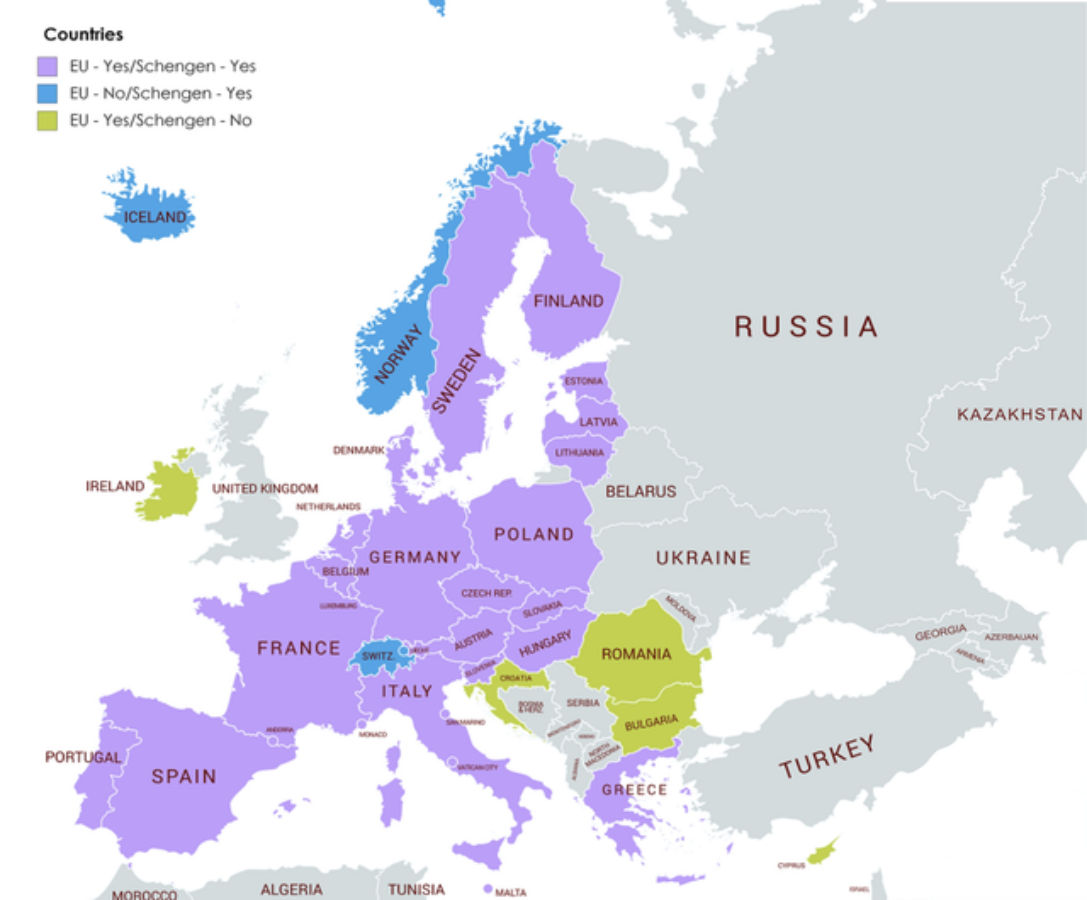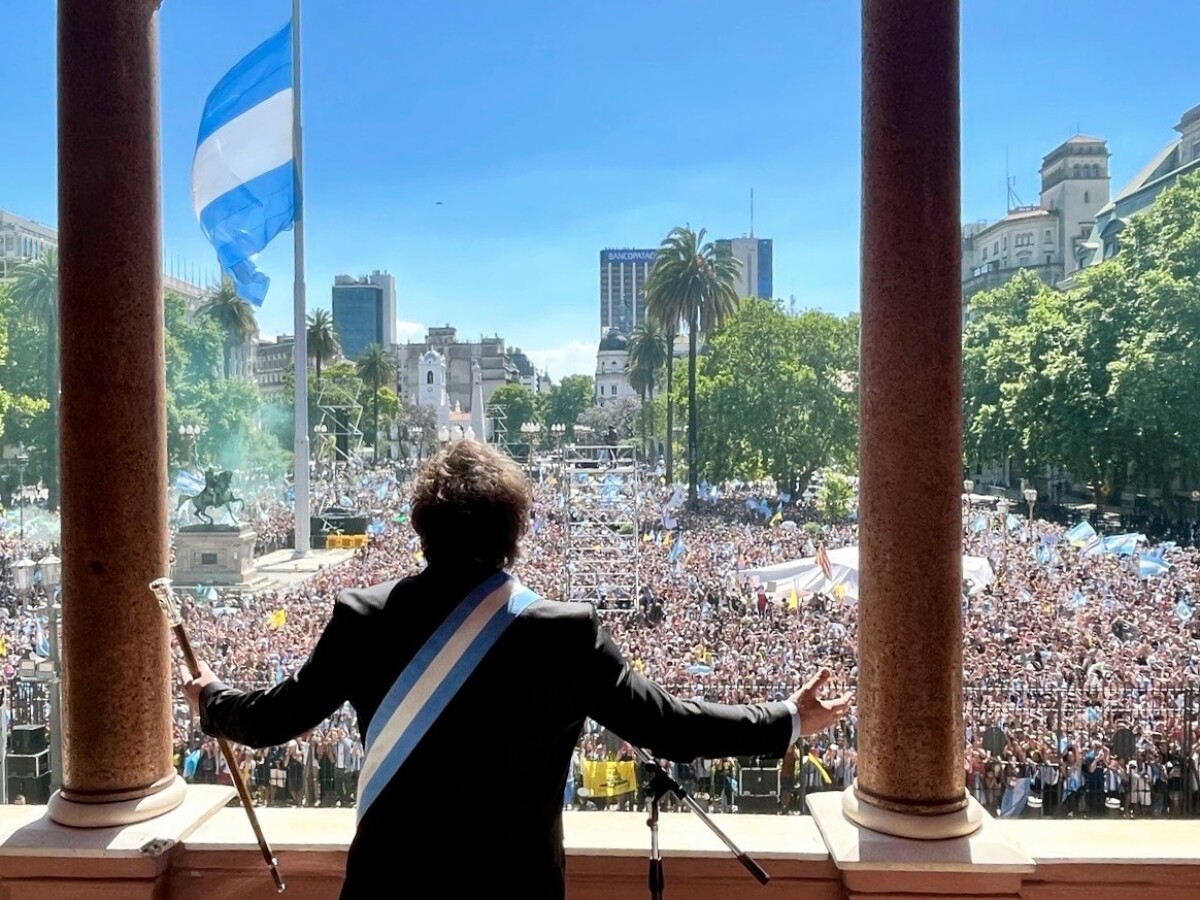Happy New Year! Welcome to our roundup of news and current events related to ethics and international affairs. Here’s some of what we’ve been reading to close out the last year and bring in the new:

Third IAEA mission to review Japan's plans and work to decommission the damaged Fukushima Daiichi Nuclear Power Station. February 2015, Tokyo, Japan. Photo Credit: Susanna Loof/IAEA via Wikimedia Commons
ABC News: Tokyo High Court holds Utility responsible for the Fukushima Daiichi disaster
Associated Press: New Year’s Day quake in Japan revives the trauma of 2011 triple disasters
On New Year's Day, a powerful 7.6 magnitude earthquake struck Japan's Noto Peninsula, killing 64 and displacing tens of thousands. While waves along the Sea of Japan's western coast only reached a few feet high, dozens of strong accompanying aftershocks evoked memories of the 2011 disaster. Nearby nuclear power plants reported minor issues but no radiation leaks. This earthquake follows a Tokyo High Court's ruling on December 26 that TEPCO, the Fukushima nuclear power plant operator, is solely responsible for compensating evacuees, exempting the Japanese government from liability. This ruling overrides a 2018 decision holding both TEPCO and the government accountable and aligns with a Supreme Court decision that the government could not have foreseen or prevented the tsunami-induced disaster. This verdict in the aftermath of Monday's earthquake is pivotal for Japan's nuclear energy policy, coming at a time when the government is pushing to restart more nuclear reactors while also trying to mitigate the long-term political impact of the Fukushima disaster.
Read more about the ethics of energy policy and technology in Ethics & International Affairs:
Introduction: Balancing Legal Norms, Moral Values, and National Interests (2019: 33-1)
Which Net Zero? Climate Justice and Net Zero Emissions (2022: 36-4)
The Peculiar Politics of Energy (2012: 26-3)

Map of EU and Schengen area members. Photo credit: EU via Wikimedia Commons
Politico: Romania and Bulgaria are set to enter the Schengen zone partially in March.
Romania and Bulgaria are set to join the European Union's Schengen zone for air and sea travel in March 2024, Romanian Prime Minister Marcel Ciolacu announced on December 27th. This partial integration into the Schengen area is tempered by Austria, which previously opposed inclusion due to concerns over illegal immigration. Austrian Interior Minister Gerhard Karner agreed to allow passport-free air travel from these countries in exchange for heightened border security measures. Romania's interior ministry stated that applying Schengen rules to Romania's land borders would be closely tied to more robust border controls and adherence to the Dublin Agreement. Critics of Austria's initial opposition argued that it stemmed from domestic political pressures over immigration concerns from the increasingly popular far-right Freedom Party and warned that it could weaken the EU and increase skepticism in Eastern Europe.
Read more about international border control and immigration in Ethics & International Affairs:
Finding Refuge through Employment: Worker Visas as a Complementary Pathway for Refugee Resettlement (2020: 34-4)
Hypocritical Inhospitality: The Global Refugee Crisis in the Light of History (2020: 34-1)
Borders of Class: Migration and Citizenship in the Capitalist State (2018: 32-2)

Newly elected president Javier Milei greets a crowd at the Casa Rosada ("Pink house"). Photo credit: Casa Rosada via Wikimedia Commons
Al Jazeera: Argentina announces that it will not join BRICS bloc:
President Javier Milei has decided Argentina will not join the BRICS bloc, a group of developing economies including Brazil, Russia, India, China, and South Africa. Taking office in December 2023, Milei expressed in a letter on the 22nd that the timing for Argentina's membership in the BRICS bloc was inappropriate. This marks a shift from Milei's predecessor, center-left President Alberto Fernandez, who advocated for Argentina's inclusion in what many consider the foremost geopolitical rival of the G7. Fernandez's efforts would have seen Argentina join BRICS on January 1, 2024. Milei's administration's policies indicate a departure from policies focused on Global South alliances. A self-styled anarcho-capitalist, Milei has domestically implemented radical economic reforms and deregulation measures. Milei highlighted Argentina's interest in bilateral ties with Western countries to boost trade and investment flows in his letter to BRICS leaders.
Read more about liberal and illiberal international development in Ethics & International Affairs:
Thomas Piketty’s Capital and the Developing World (2014: 28-4)
After Liberal Hegemony: The Advent of a Multiplex World Order (2017: 31-3)
The Marketization of Citizenship in an Age of Restrictionism (2018: 32-1)

Robes of the judges of the International Court of Justice. Photo Credit: Jeroen Bouman via Wikimedia Commons
Reuters: South Africa files genocide case against Israel at World Court
South Africa has filed a case against Israel at the International Court of Justice (ICJ), alleging that Israel is breaching the 1948 Genocide Convention with its military campaign in Gaza. As the legal arm of the United Nations, the ICJ will consider South Africa's request for an urgent order to declare Israel's breach of the convention. South Africa's demands include provisional measures to halt Israel's military campaign in Gaza, claiming it necessary to prevent further harm to non-involved Gaza residents. Israel's foreign ministry rejects the allegations, describing the suit as "baseless" and saying that Israel tries to limit harm to civilians. Palestine, recognized as an observer state by the court, welcomed the suit, urging immediate action to protect Palestinians and halt Israel's actions. This legal action by South Africa follows long-standing criticism of Israel's policy on Palestine, including a November 2023 parliamentary vote to close the Israeli embassy in Pretoria and suspend diplomatic relations.
Read more about the theory and practice of international justice in Ethics & International affairs:
Introduction: Democratizing Global Justice (2022: 36-3)
Taking Measure of the UN’s Legacy at Seventy-Five (2020: 34-3)
International Judges: Is There a Global Ethic? (2015: 29-3)